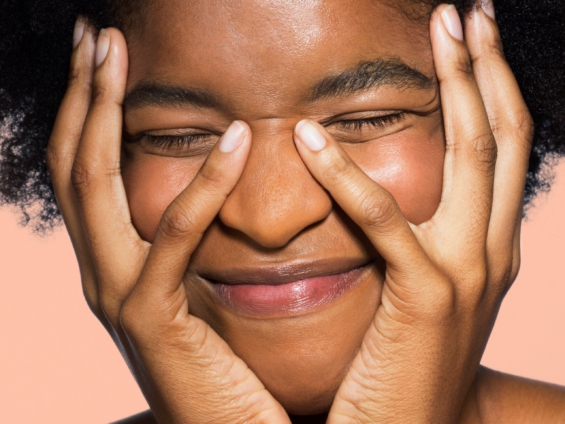Have you ever met someone and somehow, recognized them many years later? What was it about their appearance that struck such a chord?
Some people joke that when they attend their high school reunions, they feel lost in a sea of strangers, only to suddenly recognize a classmate they hardly knew. Why?
True, some people are more visually memorable than others. Researchers note that we often remember beauty, but we also remember distinctiveness.
El Haj Mohamad and André Ndobo (2020), in a study investigating destination memory (remembering information previously relayed), cited prior research finding people tended to remember both attractive and unattractive faces, suggesting that the extremes “are characterized by distinctive features” that enable facial recognition.[i]
But apparently, emotion plays a role as well. Robert G. Franklin, Jr. and Reginald B. Adams Jr. (2010) in a study aptly named “What Makes a Face Memorable?” examined the relationship between the memory of faces and emotional states.
They began by noting that face processing models indicate the existence of a “neural and functional dissociation” between the ability to process facial identity and expressiveness. They suggest this might explain the “uncharted territory” of inquiry regarding the relationship between deciphering emotion from expressive cues and using appearance cues to remember faces.
Other research suggests that when it comes to remembering people, in some ways, less is more.
Natural is Notable
Diana S. Cortes et al. (2017) investigated how memory for both faces and voices, presented both separately and in combination, varies based on sex as well as expression of emotion, including anger, fear, disgust, sadness, happiness, and neutral.
Their results, from 600 participants, showed that the accuracy rate was consistently higher for neutral conditions as compared to emotional conditions, and also that accuracy for specific emotions were varied across the modalities of presentation (faces, voices, or combinations of face-voice).
Regarding a subjective sense of recollection, it was the neutral items that received the highest rates for faces, and for voice and face-voice combinations, anger and fear expressions received the highest rates of recollection.
Among other findings related to own-sex bias, they conclude that remembering faces and voices may be impacted by both expression and sex. Regarding emotion, they found that emotional expression may enhance the subjective sense of recollection, without increasing the accuracy of memory.
Cortes et al. reveal that although we might think that emotional expressions facilitate social memory, this will not always be true.
Testing several categories together, they instead observed higher memory accuracy for stimuli that were neutral, rather than emotional.
And regarding emotions, they found higher memory accuracy for certain emotions than for others, which suggests that emotional stimuli are processed differently.
For example, they found that memory accuracy was higher for happiness and fear, as compared to other nonneutral expressions, although they also noted that accuracy regarding specific emotions differed across modalities of presentation.
Regarding the explanation for their results, Cortes et al. suggest that high accuracy rates for expressions of happiness might be explained by attentional biases toward stimuli that are pro-social, signaling approval and approachability.
They note that on the other hand, expressions of fear may be associated with a perceived threat to well-being and indeed even survival, and may therefore warrant priority in processing due to adaptive significance.
Selective Memory Is Subjective
Despite the many ways in which we apparently remember faces, sometimes years later, we also remember people because of the way they made us feel—regardless of what they look like.
Encouraging words, edifying conversation, and affirmation can make us more positively memorable than the most striking features or flamboyant attire. It is also the way most people want to be remembered.
Latest Stories
-
Let us reflect, refocus and rebuild our party – Kwaku Appiah urges NPP members
14 minutes -
24-year-old unemployed remanded for unlawful entry, stealing
14 minutes -
I will deliver on my promises - Ashaiman MP
16 minutes -
IPR Ghana congratulates President-elect Mahama
17 minutes -
BoG Governor warns of cyber threats, urges investment in security
18 minutes -
Ensure safety on roads this festive season – Drivers, road users urged
18 minutes -
Those calling for our removal don’t understand our responsibilities – Bossman Asare
21 minutes -
Use ex-gratia funds to resource education – CAPCOE to Mahama
23 minutes -
NDC candidate calls for judicial independence amid election disruptions
27 minutes -
Fire destroys 5 containers at Saglemi Affordable Housing Project site
31 minutes -
Armed robbery gang in Akatsi South jailed 125 years
36 minutes -
Ghana’s path to greatness is clear, says Akufo-Addo
39 minutes -
Mahama reaffirms commitment to creating a nation that works for all in Christmas message
44 minutes -
Listen to the Ghanaians – Prof. Yendaw tells ORAL team
53 minutes -
Election 2024: This is not the outcome NPP hoped for – Stephen Ntim
3 hours

